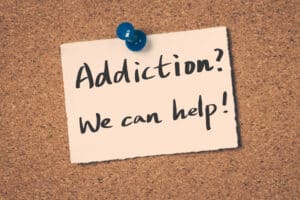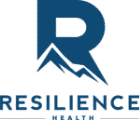What is Outpatient Care for Addiction?

Why is Outpatient Care for Addiction Important?
Outpatient medical care for addiction is a relatively new concept. Traditionally, addiction treatment was only provided on a residential basis, and people who completed the programs had no support after treatment. Studies revealed that the many patients who complete residential treatment returned to drug and alcohol use within the following year. Additionally, medical treatment with buprenorphine has been shown to significantly improve safety by decreasing overdose risk. Outpatient services were introduced to help recovering addicts transition back into society without losing the support they received during their residential treatment. As a result, we are seeing a steady increase in those who maintain long-term sobriety after their residential programs.
It has become clear in the medical field that opioid addiction must be treated as a chronic disease, much like diabetes, lung disease or heart disease. Programs that do not include long term follow up have decreased success when compared to long term medical treatment with a trained physician after discharge. This would mirror the results of a patient being hospitalized for lung or heart disease, having no medical follow-up after inpatient treatment. True success in any chronic disease treatment is found in the outpatient realm between a doctor and their patient. The best of all is when a patient never gets sick enough to even need inpatient hospitalization.
Many people still maintain an adequate level of functioning in their job, parenting and other relationships. They an have more success without the disruption of attending an 30-90 day inpatient program. These people can start seeing immediate return to normal functioning in their job and parenting through a medical at home treatment program. Outpatient, long term programs have much higher success, much higher confidentiality (i.e. your boss and associates don’t need to know) and much higher convenience than attending an inpatient program. Patients that are no longer able to function in their job or parenting effectively, can benefit greatly from the structure, treatments and education of an inpatient program before transitioning to our two year outpatient program. Clearly, when a patient is sick enough, they need an inpatient program to save their lives and stabilize them. If we determine that you have need, we will help you choose a top quality inpatient program
What Does Outpatient Care for Addiction Involve?

Regular therapy visits are a mandatory part of our program. We don’t employ therapists because there are so many excellent therapists already in the community. We have an experienced addiction psychologist who will perform an in depth evaluation of your addiction history, your mental health needs and potential triggers and traumas that will affect your recovery success. They will give you a summary and help you understand the psychological evaluation and how we can help you better. We will help you find a great therapist. Alternatively, you can choose to attend our virtual group therapy sessions to satisfy this requirement. We also offer virtual group therapy sessions for your family or other support people helping you with your recovery.
We also require that patients participate in an addiction support group (such as a 12 step Narcotics Anonymous). We will help you find a group.
Lastly, all of your health is important and we want you to have a relationship with a primary care physician. It is required that you have an annual exam with a primary care physician when you start the program or within the last 12 months and during each year of the program.
How Do I Know If I Need Outpatient Care for Addiction?
All patients need long term outpatient care to have maximum sobriety success and the best health outcome. Office based outpatient care is ideal for patients whose lives are being negatively affected by their opioid use but who are still functioning well enough to maintain their job or parenting functions or normal social appearance. They also should have a circle of friends, family or support people that do not abuse drugs or alcohol. Some patients need the structure and focused treatments of an inpatient program first, before they are ready for the long term, outpatient medical treatment. We can help you make this decision. Reach out to our experienced staff and ask them. If needed, we will refer you to our trusted inpatient programs in the community. After you finish the inpatient program, we will take over care and be with you every step of the way for the next two years.
What Happens During an Initial Consultation?
The initial consultation is crucial in outpatient addiction recovery. Our team will conduct an in-depth assessment during this meeting. This gives them a chance to understand your unique situation and needs.
The assessment includes:
- A detailed medical history
- An evaluation of your substance use patterns
- A discussion about any co-occurring mental health conditions
The consultation also gives you a chance to ask questions and express concerns about the outpatient addiction recovery process.
What Are the Most Common Myths and Misconceptions About Addiction Recovery Outpatient Care?
There are several myths about outpatient addiction recovery. These misconceptions can prevent people from seeking help.
Myth #1: Outpatient Care Doesn’t Work as Well as Inpatient Care
Outpatient addiction recovery programs, such as those offered by Resilience Health, can produce similar results to inpatient treatment (and, in some cases, better outcomes). They are especially effective for individuals with a robust support system and a stable home environment.
Myth #2: Outpatient Care Is Only for Mild Cases
Outpatient programs can be beneficial for various levels of substance abuse. They can be tailored to treat different levels of substance abuse, including severe addiction to opioids and other drugs.
Outpatient treatment can be particularly effective when combined with ongoing support and a strong personal commitment to recovery.
Myth #3: Outpatient Care Is Not Comprehensive
Outpatient treatment can be just as comprehensive as inpatient treatment. For example, at Resilience Health, our outpatient services include:
- Medication-assisted treatment
- Support groups
- Family education programs
We also work with patients to find a therapist who is a good fit for them and their needs. We aim to provide a well-rounded approach to recovery and address addiction from multiple angles.
What Is the Rehab Phase of Recovery?
The rehab phase of recovery is critical to overall treatment at Resilience Health. This period focuses on intensive therapy and counseling. The goal is to address the underlying issues contributing to addiction.
The rehab phase typically involves a mix of individual, group, and family therapy. Counselors work with patients to:
- Develop coping strategies
- Improve communication
- Build resilience against triggers
This phase is also about learning new habits and lifestyle changes that encourage long-term sobriety. By participating, individuals gain the tools they need to manage their addiction and maintain recovery. They can do this while continuing to live at home and attending to daily responsibilities.
What Are Some Recovery Skills Everyone Should Know?
Recovery skills are essential for anyone undergoing outpatient addiction treatment. At Resilience Health, we emphasize several vital skills, including:
- Coping Strategies: These include techniques such as mindfulness, meditation, and healthy lifestyle choices.
- Relapse Prevention: This involves identifying high-risk situations and developing techniques for avoiding or managing them.
- Healthy Communication: Effective communication helps in rebuilding relationships and expressing needs and boundaries clearly.
- Support Systems: Building a solid network of family, friends, and support groups is important for maintaining motivation and receiving encouragement during difficult times.
- Self-Care: Prioritizing self-care activities, including regular exercise, proper nutrition, and adequate sleep, promotes overall well-being.
By mastering these skills, individuals in our outpatient addiction recovery program can achieve lasting success.
Why Choose Resilience Health?
Choosing Resilience Health for outpatient opioid care means entrusting your recovery to a team dedicated to creating lasting change. Our mission is to provide a lifeline to those facing the challenges of addiction. That’s why we offer long-term medical treatment designed to maximize your success.
At Resilience Health, patients are under the supervision of and have unlimited access to Dr. Abe Tomco. Dr. Tomco brings 17 years of extensive experience in family and behavioral medicine. He ensures our patients receive personalized, compassionate treatment tailored to their unique needs.
Schedule a Consultation in Heber City
The Resilience Health Team is committed to providing high-quality, affordable outpatient rehab options. Our program is designed to offer the best addiction treatment services in Wasatch County and Summit County.
Schedule a consultation with us today by calling 435-261-7878.


